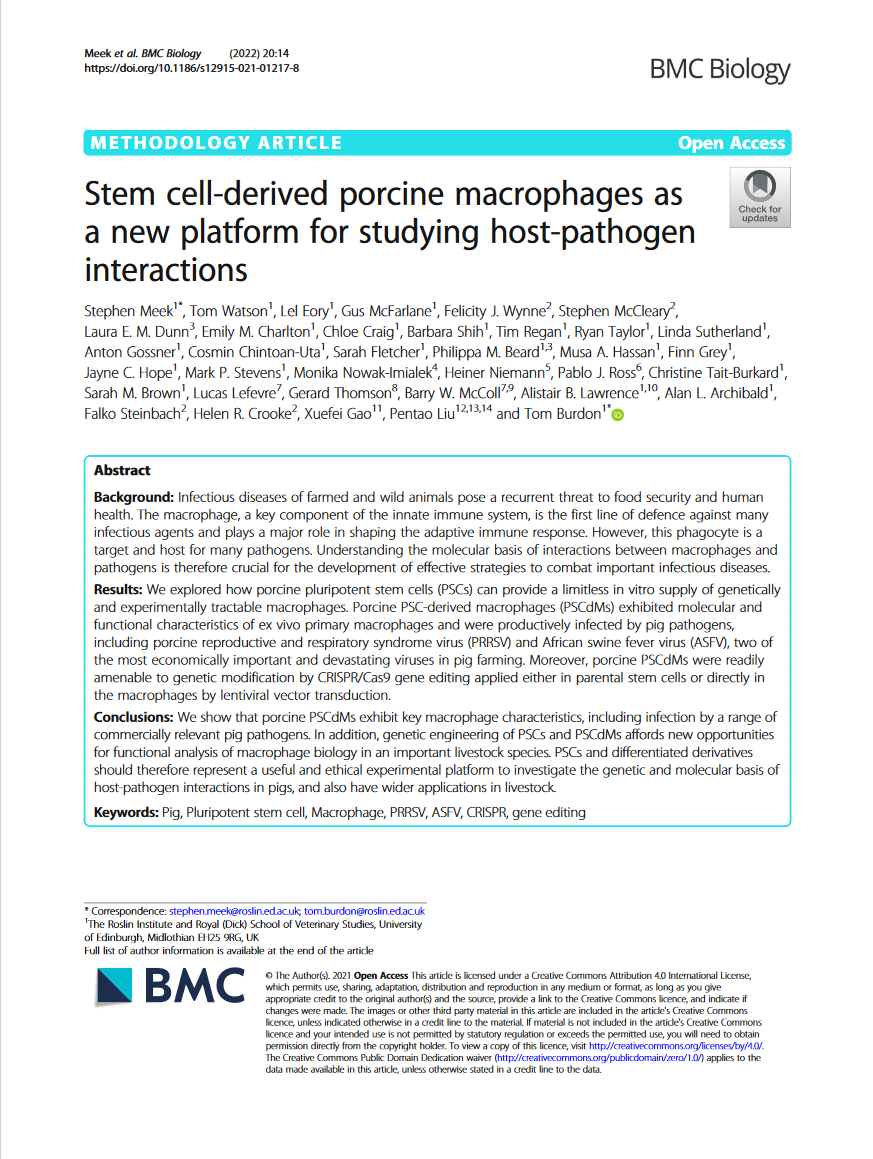04.11.2022
Stem cell-derived porcine macrophages as a new platform for studying host-pathogen interactions
BMC Biology, 2022
Abstract
Background
Infectious diseases of farmed and wild animals pose a recurrent threat to food security and human health. The macrophage, a key component of the innate immune system, is the first line of defence against many infectious agents and plays a major role in shaping the adaptive immune response. However, this phagocyte is a target and host for many pathogens. Understanding the molecular basis of interactions between macrophages and pathogens is therefore crucial for the development of effective strategies to combat important infectious diseases.
Results
We explored how porcine pluripotent stem cells (PSCs) can provide a limitless in vitro supply of genetically and experimentally tractable macrophages. Porcine PSC-derived macrophages (PSCdMs) exhibited molecular and functional characteristics of ex vivo primary macrophages and were productively infected by pig pathogens, including porcine reproductive and respiratory syndrome virus (PRRSV) and African swine fever virus (ASFV), two of the most economically important and devastating viruses in pig farming. Moreover, porcine PSCdMs were readily amenable to genetic modification by CRISPR/Cas9 gene editing applied either in parental stem cells or directly in the macrophages by lentiviral vector transduction.
Conclusions
We show that porcine PSCdMs exhibit key macrophage characteristics, including infection by a range of commercially relevant pig pathogens. In addition, genetic engineering of PSCs and PSCdMs affords new opportunities for functional analysis of macrophage biology in an important livestock species. PSCs and differentiated derivatives should therefore represent a useful and ethical experimental platform to investigate the genetic and molecular basis of host-pathogen interactions in pigs, and also have wider applications in livestock.
Recombinant human bFGF #Qk027 manufactured by our partner Qkine is featured in this study.
>> View article


